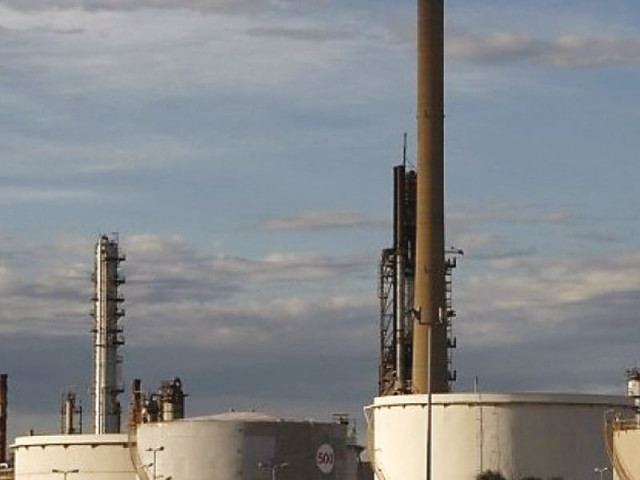Freight margin: Finance ministry calls for criteria to stop misuse
Gives the go-ahead to reopening six closed storages of petroleum products.

OMCs are bound to set up a 20-day storage capacity, but several companies have failed to do so, asking instead to open the abandoned storages. PHOTO: FILE
The Ministry of Finance and Planning Commission have floated a proposal that calls for setting criteria for taking strict action against the oil marketing companies (OMCs) that are involved in dumping petroleum products and misuse of inland freight equalisation margin (IFEM) to pocket billions from consumers.
The proposal comes in the wake of the go-ahead given by the Ministry of Finance for reopening six abandoned oil storages. However, it would not bear any financial impact and has suggested that the Oil and Gas Regulatory Authority (Ogra) should develop a mechanism to prevent dumping and misuse of freight margin by the OMCs, sources say.
By reopening the closed depots, the Ministry of Petroleum and Natural Resources appears to be bailing out those OMCs which have failed to establish oil storage facilities in violation of marketing licences.
According to the sources, the OMCs are bound to set up a 20-day storage capacity, but several companies have failed to do so. Instead, the OMCs wanted to open the abandoned storages, which were closed by the previous government in an attempt to discourage dumping and misuse of freight margin.

Pakistan State Oil (PSO) and Shell had set up the six storages at Daulatpur, Khuzdar, Sangi, Habibabad, Kundian and Serai Naurang to keep oil stocks in order to avert shortage and smoothly meet the country’s demand. However, other OMCs have yet to develop storages.
The Planning Commission has also not objected to the re-opening of the storages under the IFEM regime. However, it suggests that the Ministry of Petroleum could formulate proper criteria for establishing new storages by different OMCs, other than PSO and Shell.
In a summary moved to the Economic Coordination Committee (ECC) of the cabinet, the Ministry of Petroleum said both the ministry and Ogra had taken initiatives to increase the stocks of petroleum products at various locations, including construction of 20-day storages for each product. However, the situation has not improved significantly.
With sharply reduced supply of gas to compressed natural gas (CNG) stations and use of motor gasoline, or petrol, in generators, oil demand has increased up to 21% in the last two years, underscoring the need for reopening closed oil depots to overcome shortages.
After the opening of the depots, 26,000 tons of storage capacity will be available with PSO and Shell Pakistan, leading to increased supply of oil products.
According to the Oil Companies Advisory Committee, which comprises oil marketing companies, PSO will supply petroleum products to the OMCs which have no storage facilities in the above mentioned areas on commercial basis and mutually agreed terms and conditions for two years to avoid shortage at retail outlets.
Ogra will monitor the movement of products as per rules and policy. The cost impact on IFEM is Rs0.10 per litre in case of high-speed diesel and Rs0.04 on mogas.
Published in The Express Tribune, January 14th, 2014.
Like Business on Facebook, follow @TribuneBiz on Twitter to stay informed and join in the conversation.



















COMMENTS
Comments are moderated and generally will be posted if they are on-topic and not abusive.
For more information, please see our Comments FAQ